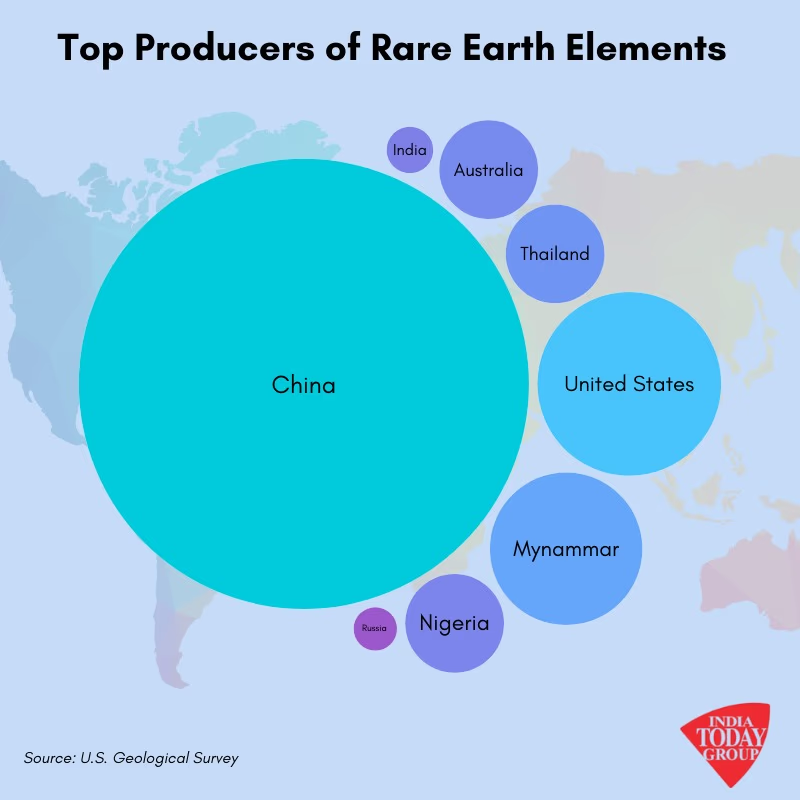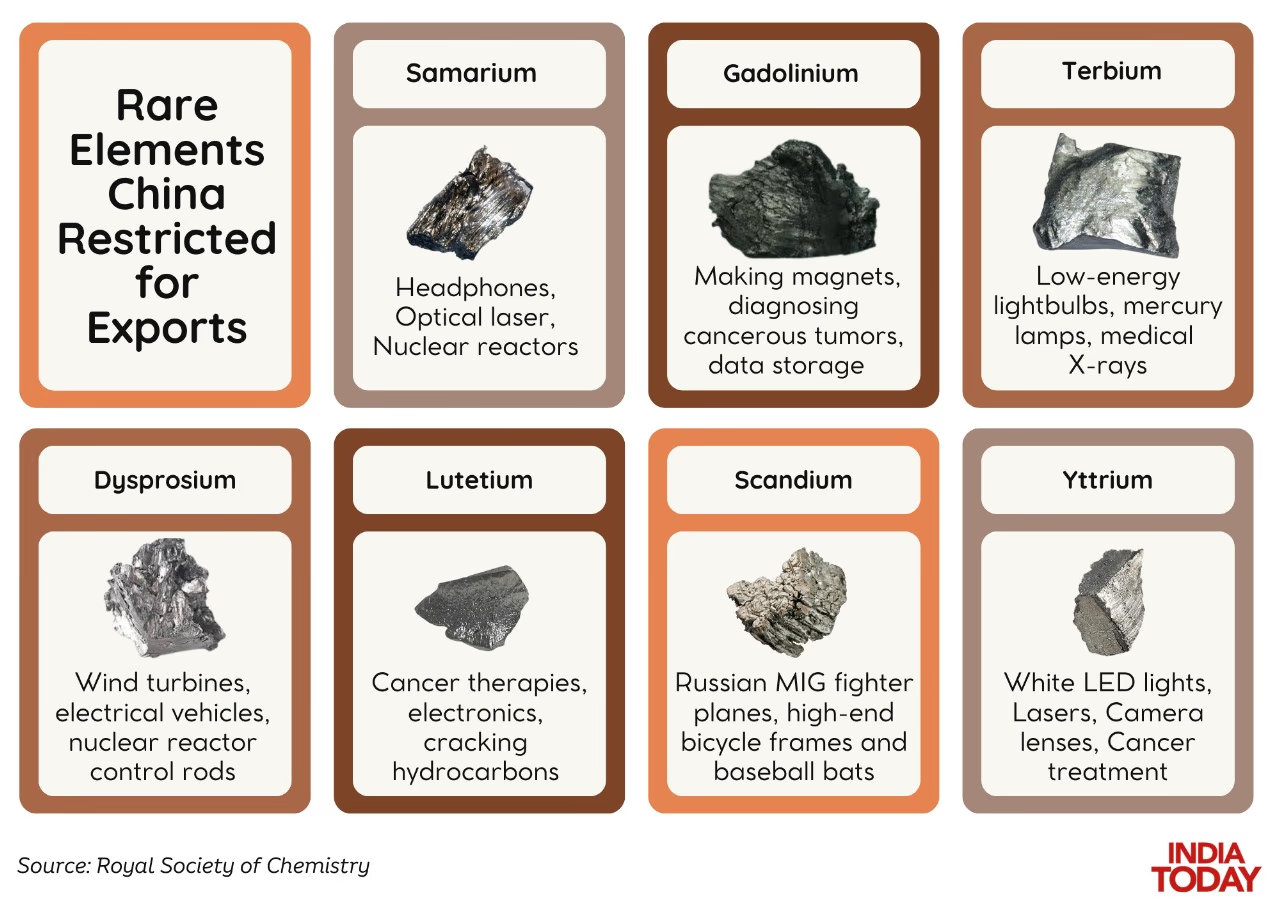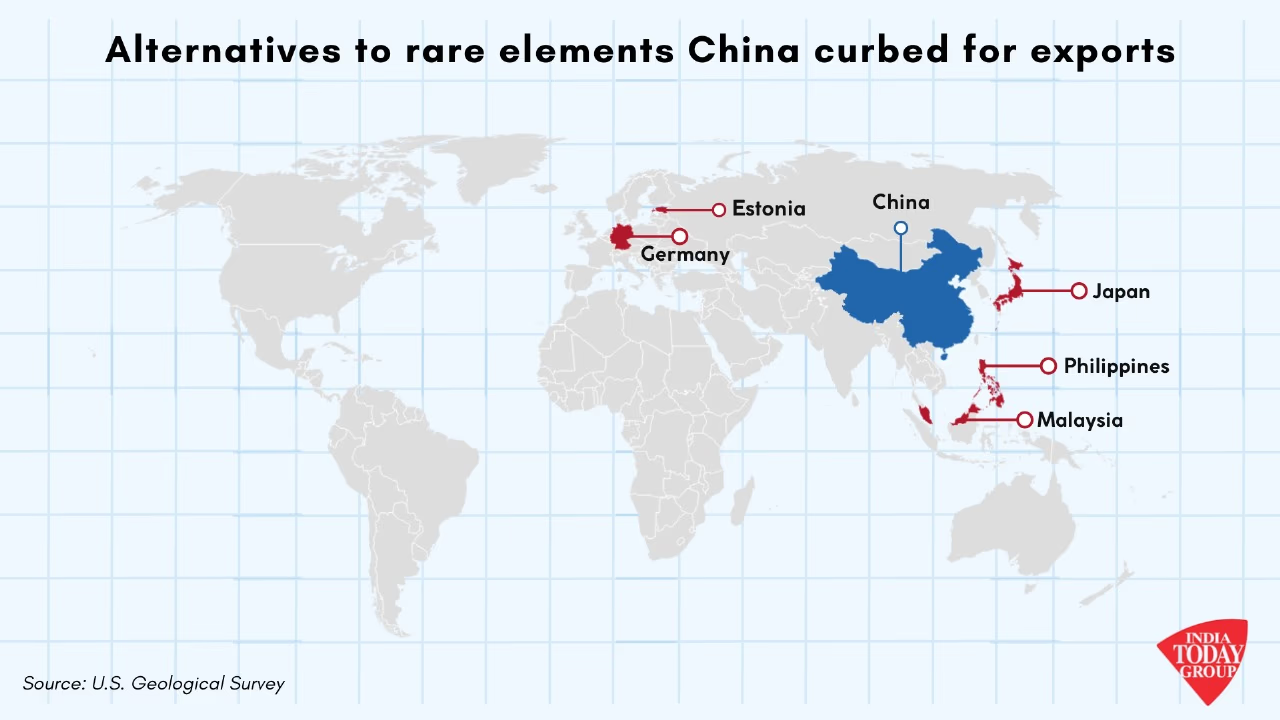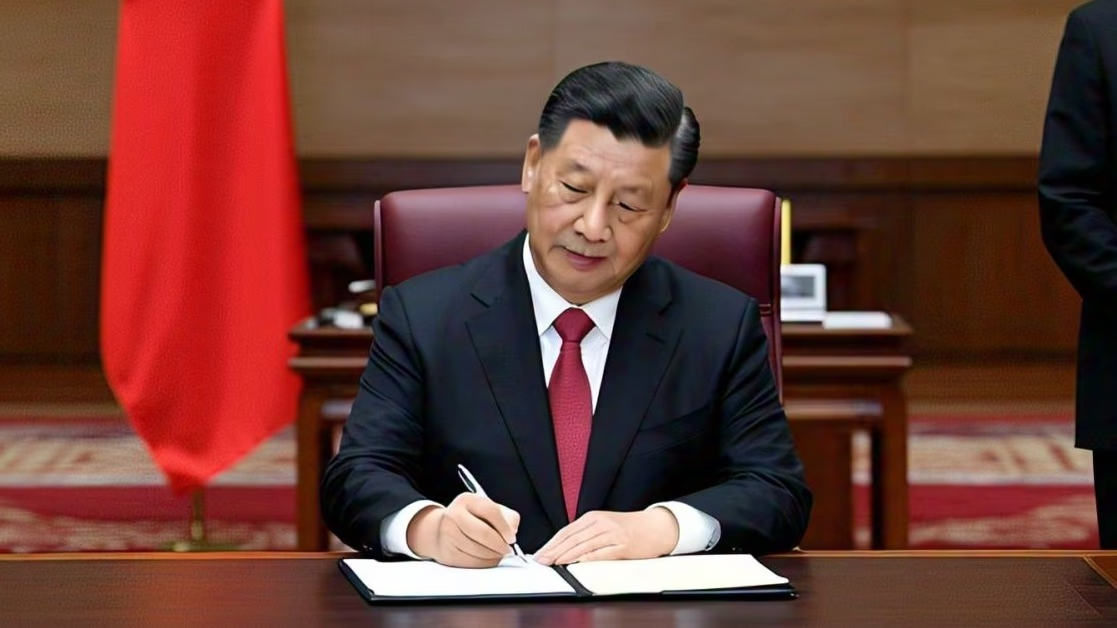Trade tensions between the USA and China have been simmering, and new tariff wars have only escalated the situation. Amidst this tension, China has taken a significant step. It has halted the export of seven rare and crucial metals. These metals are indispensable in today's world, contributing to new technologies, medicines, weapons, and energy production. Their importance extends beyond the USA, impacting global industries.
China's export ban applies to all countries, not just the USA, indicating an intent to wield its power strategically.
Which Are These Seven Crucial Metals?
China's ban includes samarium, gadolinium, terbium, dysprosium, lutetium, scandium, and yttrium. These may sound unfamiliar, but they're integral to our daily lives, used in making wires, rods, powders, plates, tubes, and magnets. Without them, major industries could grind to a halt. These are classified as medium to heavy rare earth elements. Let's delve into their applications.

Source: aajtak
What Are Their Functions?
Each metal boasts unique properties, making the production of essential items challenging without them. Samarium, for instance, finds use in headphones, personal stereos, optical lasers, and nuclear reactors. Any high-quality headphone you own likely includes samarium.
Gadolinium:
Critical in magnet production, it also finds use in electronic goods and data storage devices. Notably, it aids in detecting cancerous tumors in MRI scans and is crucial for nuclear reactor operations.
Terbium:
Utilized in energy-efficient bulbs and mercury lamps, this metal also enhances the safety and clarity of medical X-rays.
Dysprosium:
Essential for manufacturing robust magnets for wind turbines and electric vehicles, it is also used in control rods for nuclear reactors.
Lutetium:
Integral in oil refining, particularly in hydrocarbon breakdown within refineries.
Scandium:
Known for its strength and lightness, scandium is used in Russian MiG fighter jets, high-end bicycle frames, and baseball bats. It also has applications in vapor lamps.
Yttrium:
Used in white LED lights, lasers, camera lenses, and superconductors, yttrium is also invaluable in cancer treatments.
Why Are These Metals Crucial?
Why are these metals paramount today? As technology and industry advance rapidly, every nation aims to innovate. These rare metals are essential for such developments. To develop electric vehicles? Dysprosium is a must. To treat cancer? Yttrium and gadolinium are necessary. For military hardware or jets? You need scandium. These metals form the backbone of major advancements.
The race to secure these metals is global. Every nation strives to stockpile them, ensuring they remain at the forefront. Even America's President Donald Trump has prioritized these metals, discussing potential deals with Ukraine, contingent on resolving conflicts with Russia, highlighting their strategic importance.

Source: aajtak
Leading Companies Depend on These Metals
Major corporations like Apple, Sony, Samsung, Tesla, Lockheed Martin, and Boeing heavily rely on these metals for producing phones, vehicles, airplanes, and other products. A supply suspension could severely impact these giants.
As the largest producer, China manufactured 270,000 tons of these metals in 2024, a staggering figure compared to America's 45,000 tons, meaning China's production eclipses America's fivefold. Last year, 70% of global rare metal production originated from China, as reported by the US Geological Survey.
Not only does China produce these metals, but it also sells them worldwide. 70% of America's requirement comes from China, while the remainder comes from countries like Malaysia, Japan, and Estonia. In 2024, the USA imported $170 million worth of these metals, per the US Geological Survey's January 2025 report.
Who Else Produces Them?
Aside from China, a few other countries manufacture these metals, albeit in minuscule quantities. In 2024, India produced 2,900 tons, while Australia and Thailand each made 13,000 tons, significantly less than China's output. While India also mines these metals, their production remains relatively low.

Source: aajtak
Our Position?
From 2020 to 2023, America sourced 70% of its requirements from China, and the remainder from Malaysia (13%), Japan (6%), and Estonia (5%), with the rest coming from other countries. With China's current embargo, challenges loom for the USA and other nations.
This move by China is monumental. These metals are ingrained in our lives, and without them, manufacturing phones, cars, lamps, planes, and medicines becomes daunting. China's export restriction flexes its might, aiming to steer global dynamics on its terms. If nations don't swiftly find alternatives, industries worldwide will feel the strain.
For countries like India, this presents an opportunity. By ramping up their mining, they can carve a niche globally. But for now, China's dominance is palpable. The coming days will reveal how the world tackles this emerging challenge.




